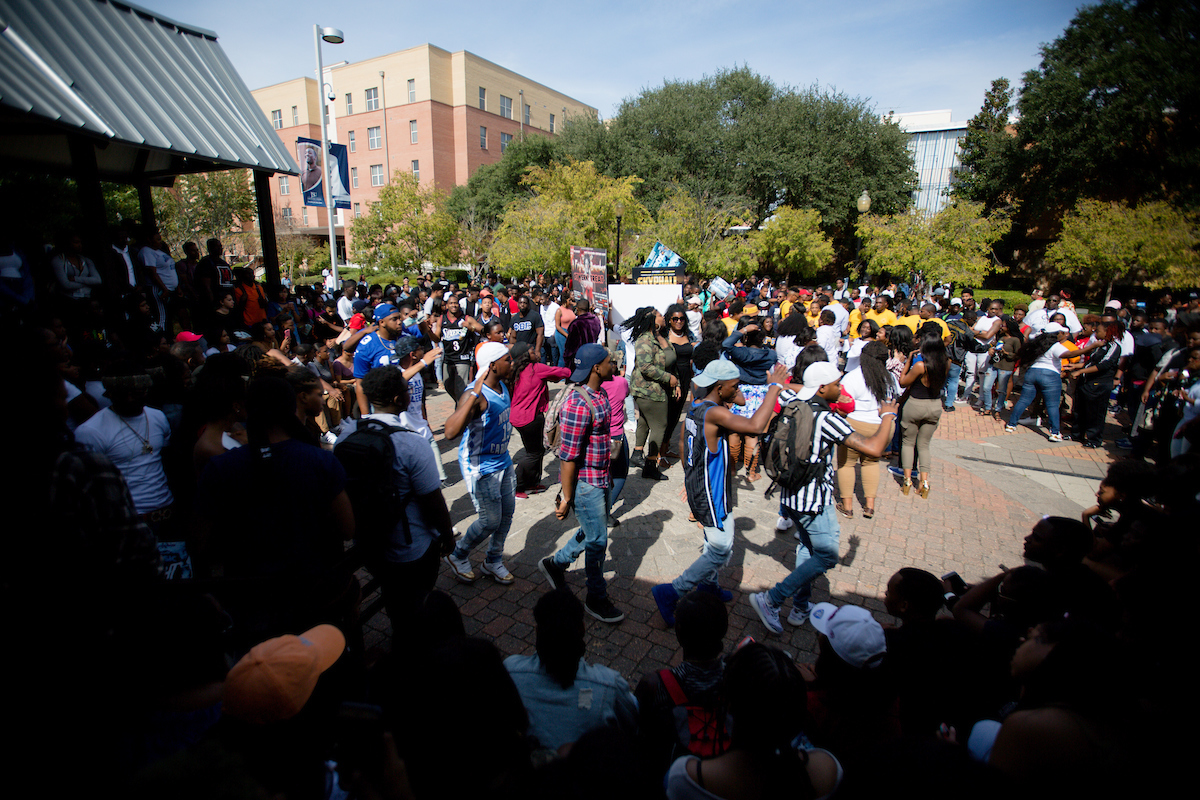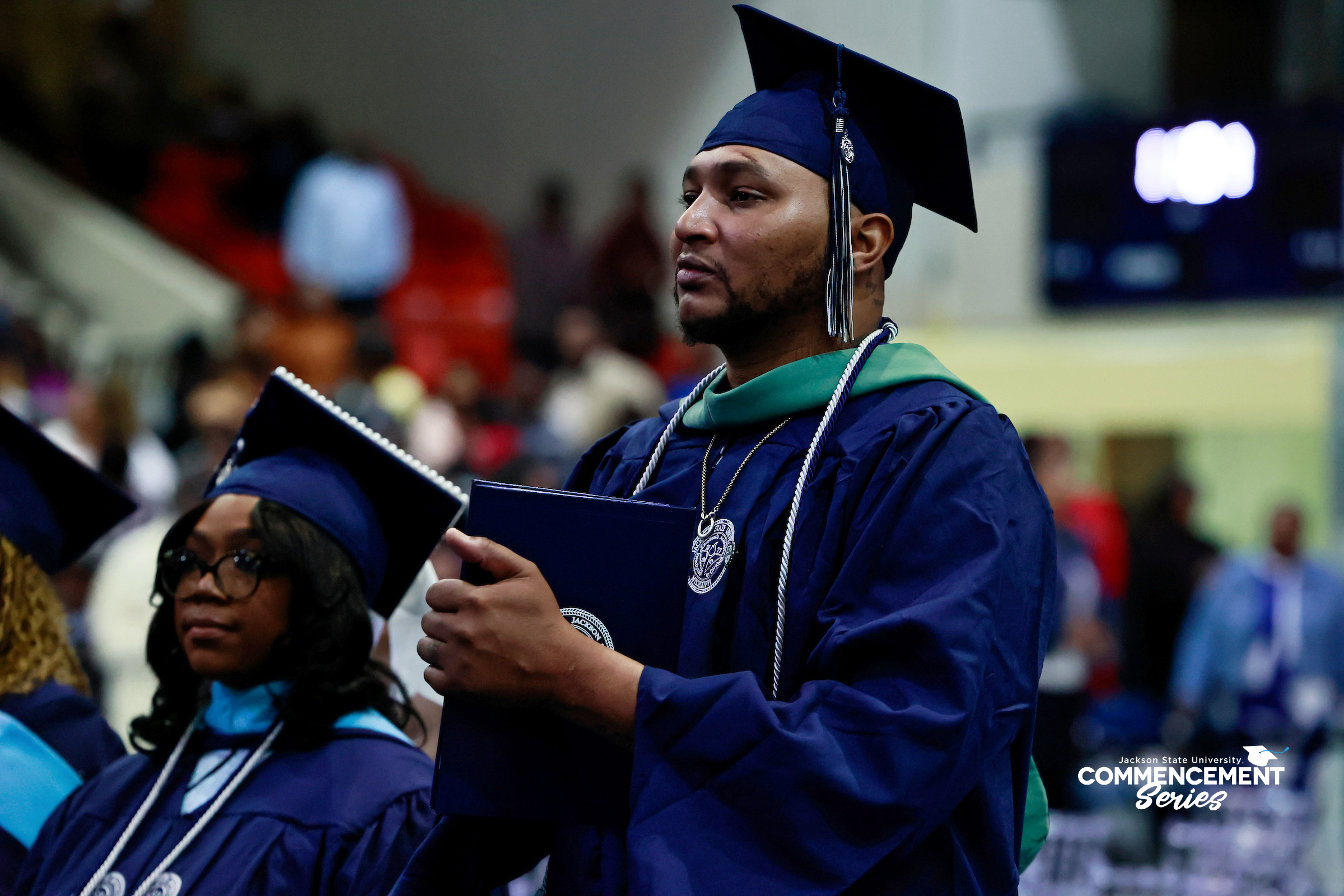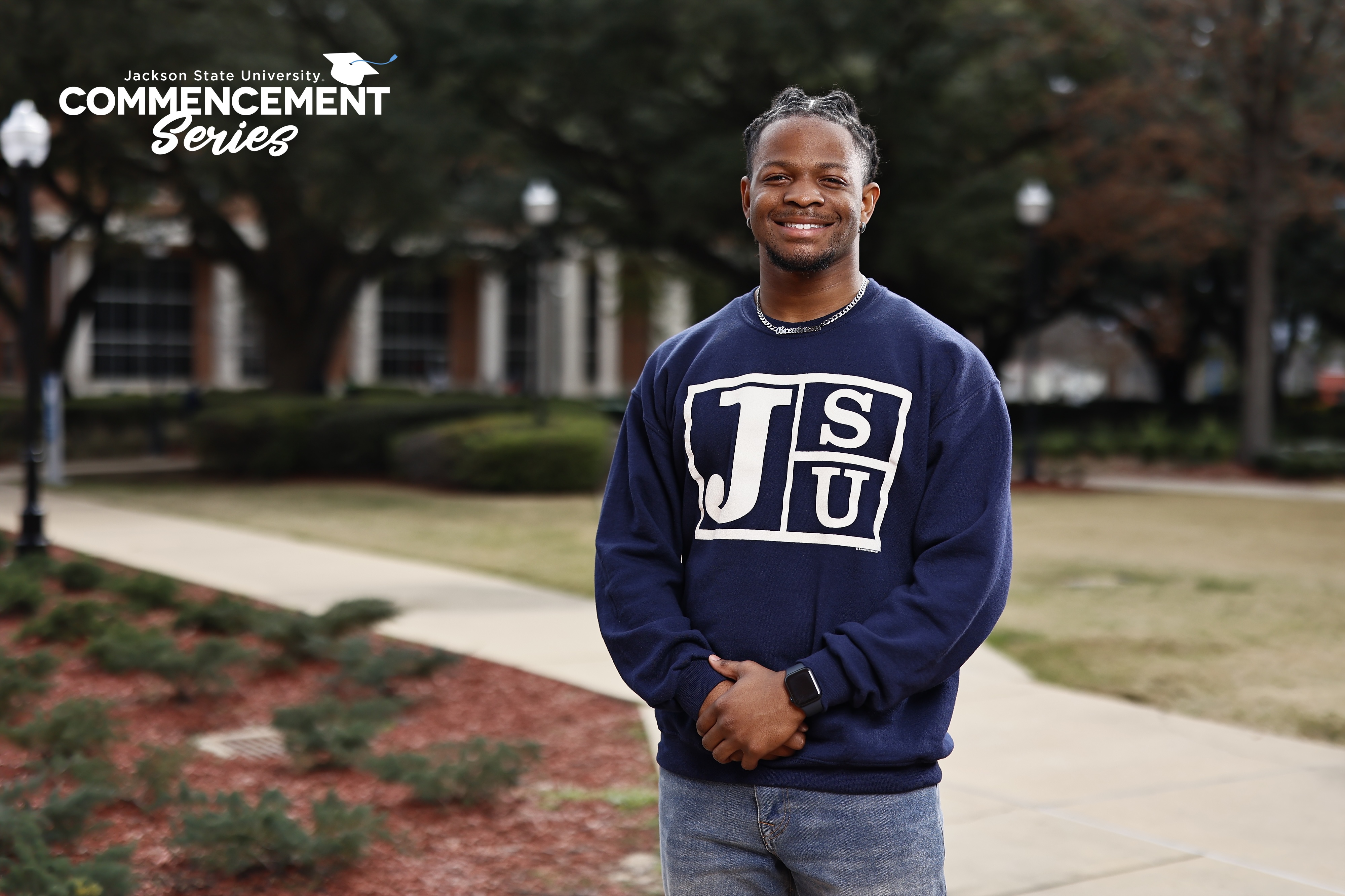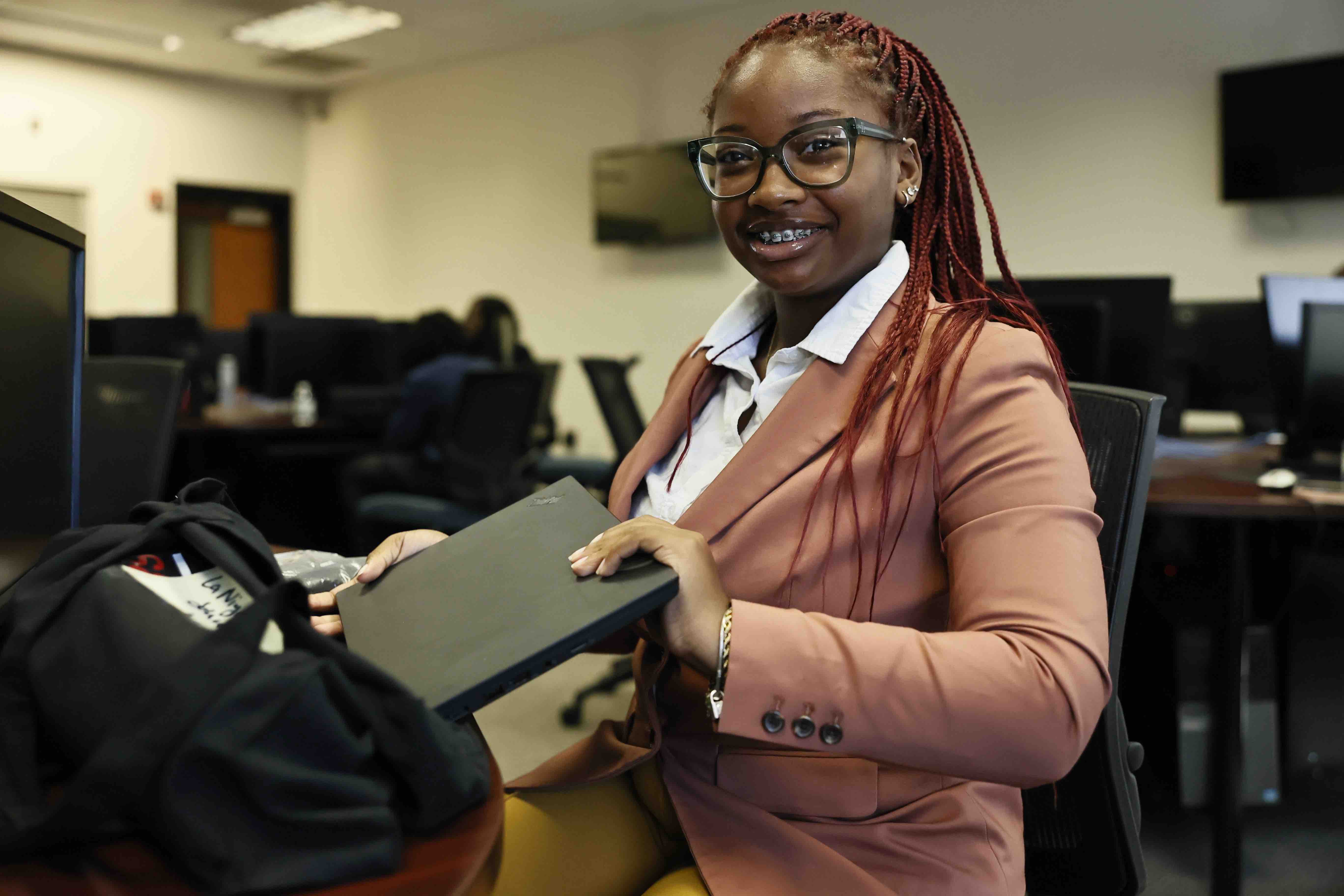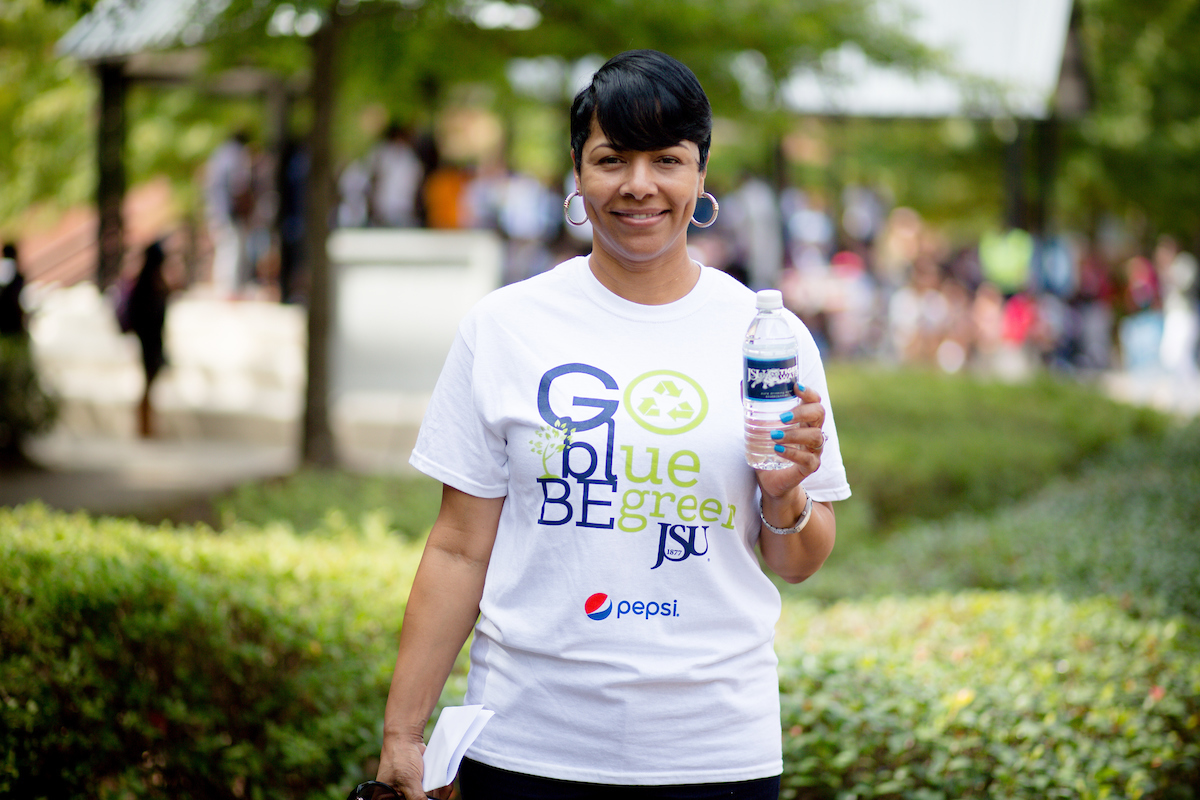
![]()
[hr]
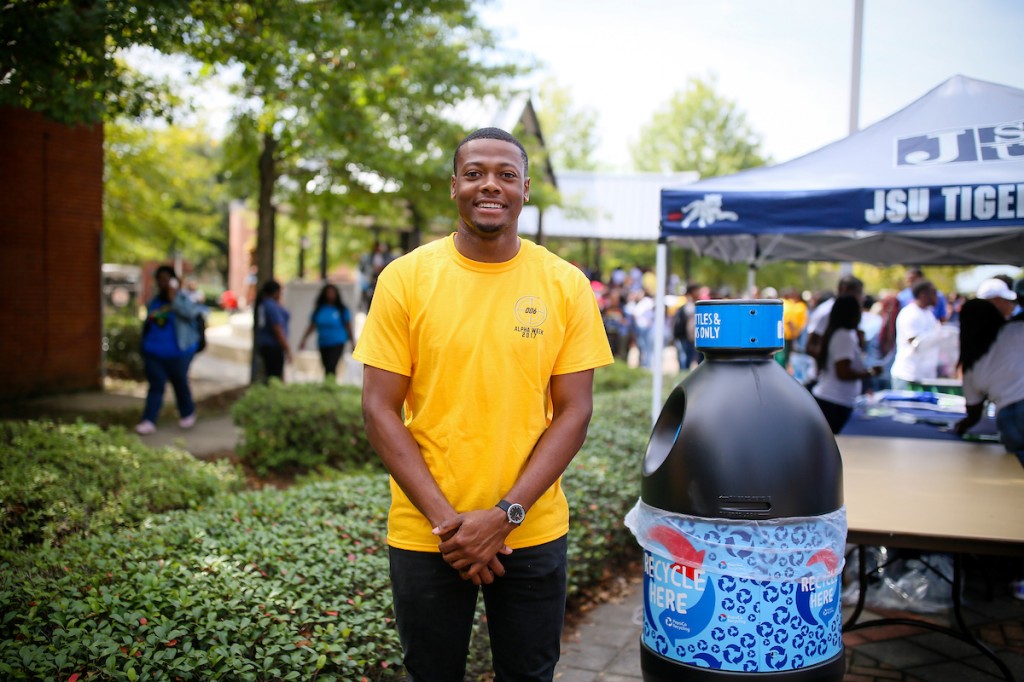
Although “blue and white” traditionally blankets the university, first lady Deborah Bynum and other leaders are urging everyone to also embrace “green” and join a recycling effort that, ultimately, will expand to all JSU campuses.
“This initiative is so important because we need to do our part in taking care of the environment and leaving it in a better condition for generations to come,” Bynum said. “A lot of the waste we have here can be recycled.”
After arriving on campus, she said she noticed there was no widespread recycling program. As a result, she helped launch the initial phase of the “Go Blue Be Green” campaign at the Hotspot recently on the Gibbs-Green Plaza.
She announced that receptacles on the main campus would be placed first in the Administration Tower and Student Center, a high-traffic area.
Although the main campus is preparing to expand its waste collection, the Jackson Medical Mall and the Downtown Campus are already set up for recycling. Meanwhile, off-campus sites such as Ridgewood and the Mississippi e-Center@JSU will be activated soon.
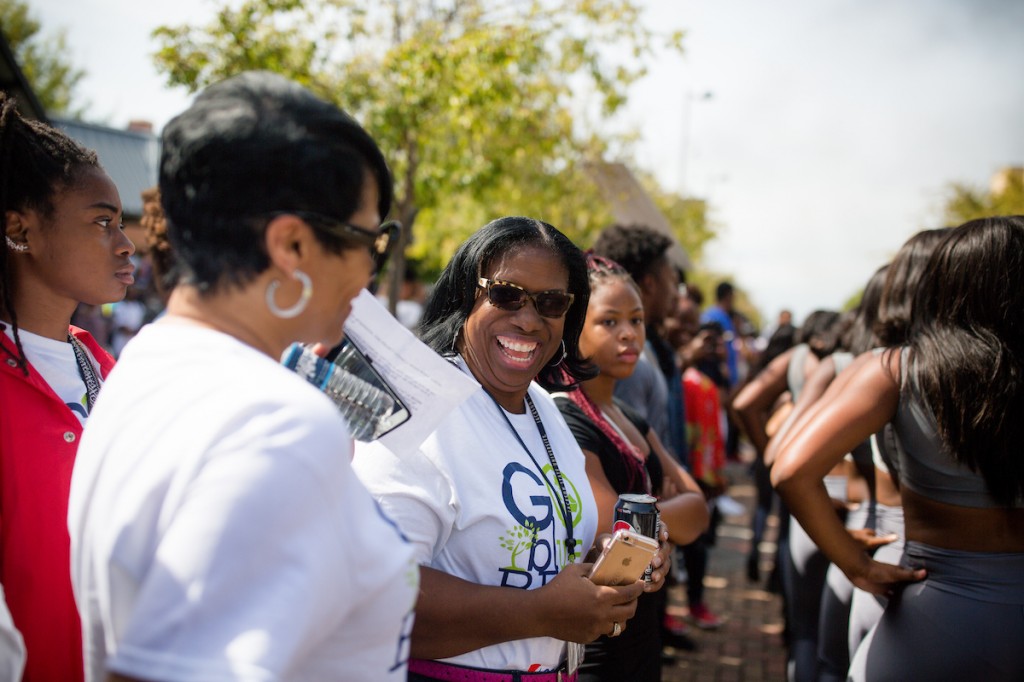
To help with the collection, each employee will be given a seven-gallon container purchased from a vendor. Workers would be able to discard office paper and plastic that will be transported to a bigger steel bin.
Also, beverage company Pepsi is joining the effort by providing free-standing bins that can be transported easily to high-traffic areas.
Friday’s Hotspot event was hosted by the Delta Phi Chapter of Alpha Phi Alpha Fraternity, Inc., with support from a number of other campus organizations. As well, the Sonic Boom of the South and Prancing J-Settes entertained a crowd of hundreds that included faculty, staff and students showing their support for the green initiative.
Bynum said, “The goal of recycling is to empower our students to take over this project as well as get the community involved. I’m thankful for those involved in this campus-wide initiative. This is something students have desired to do for a long time.”
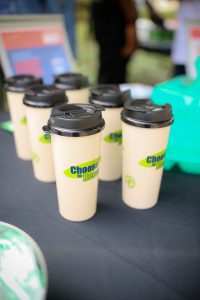
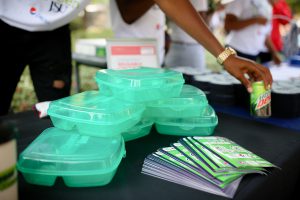
Another goal, she said, is to have recycling bins positioned before homecoming, which is Nov. 4.
Although this initiative is getting quite a bit of attention, recycling is not new to JSU. In fact, the effort has been quietly operating for 20 years. But, now it’s being fueled by stronger support from Bynum and the administration. And that makes Paulette Bridges ecstatic.
Bridges is a grants coordinator who works in Civil and Environmental Engineering and Industrial Systems and Technology. She wrote a recycling proposal in 1996 that garnered $13,000 from the Mississippi Department of Environmental Quality. That was followed the next year with $14,000. Over time, however, funding disappeared, but students continued to volunteer.
“I’m excited about the support from the administration. This is an expansion of what we’ve been doing. My students and I will be working with the first lady to spread recycling throughout the entire campus,” said Bridges, who also leads JSU’s computer recycling efforts. She expects the latest effort spearheaded by Bynum will be in full swing sometime in 2018 with every JSU campus involved.
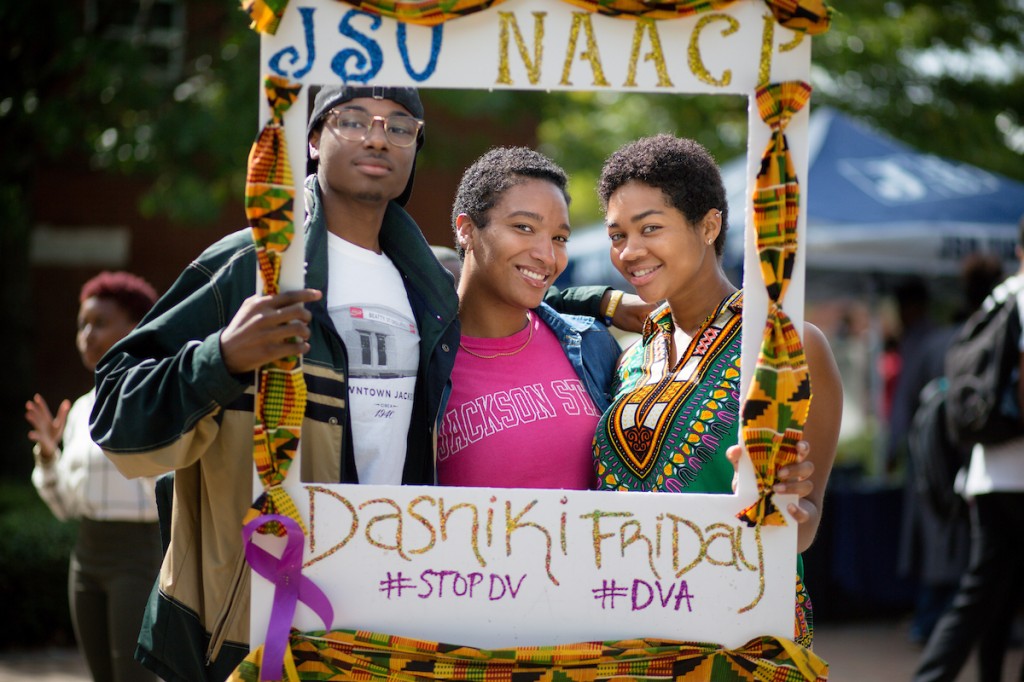
Telandus Craft, a JSU senior biology pre-med student, is helping his Alpha Phi Alpha fraternity influence peers and others to “think green.” The organization reached out to offer its support to Bynum and Auxiliary Services, which is playing a significant role in the effort to reduce waste and environmental hazards.
The Forest native said, “Our fraternity believes that by supporting this initiative, it will encourage communities and all students – not only at Jackson State – to protect our environment.” From now through December, Craft said Alpha Phi Alpha envisions helping place storage bins at each corner of campus to get more students involved in properly dispensing waste.
Beyond Alpha Phi Alpha, the range of supporters is far and wide and includes faculty and a recycling vendor who will help process material collected.
Dr. Moe Chowdhury, a visiting assistant professor in Urban and Regional Planning, is helping to push toward a greener environment. Before coming to JSU, he worked 20 years as a solid waste director in Ohio, where he set up recycling programs for three counties.
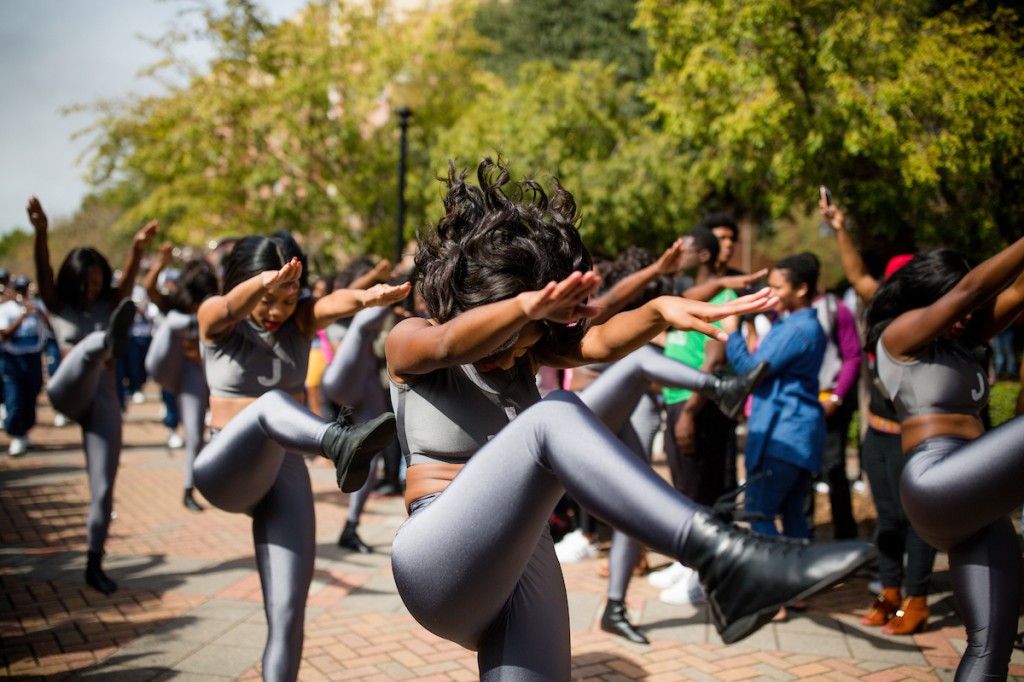
“Our No. 1 goal is to reduce waste in landfills, and our No. 2 goal is to reduce the cost for garbage pickup and storage,” Chowdhury said. “This will help the environment a lot. All the stuff we’re recycling will avoid going to the landfill. When garbage goes there it creates a potential for water contamination.”
Another important factor, Chowdhury said, is that by “going green it reduces carbon emission.” Unfortunately, landfills produce a lot of carbon dioxide, which creates a hole in the ozone layer – allowing the entry of ultraviolet radiation.
Along with that, he said recycling remains a challenge in Mississippi. “It’s difficult getting people engaged. Changing that would be good for our city and especially in our African-American communities, which lags in recycling.”
Chowdhury said JSU will work collaboratively with Allen Recycling, owned by alum Clarence Allen. The company will process trash for sale to clients, for example, in the paper, cardboard and plastic industries. All material will be used to manufacture new products.
Another student anxious about the initiative is Karmeen Powell-Childress, a senior computer science major from East Saint Louis, Illinois. She’s also a White House HBCU All-Star who represents JSU, serves as a national ambassador on outreach opportunities and touts the value of education to peers.
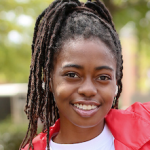
Powell-Childress has been the student liaison in the planning of the recycling initiative. Since she was tasked with helping provide incentives for students, a plan was devised to offer community service hours in exchange for their participation.
“It’s up to us to be the change we want to see. … Recycling is just a start. The way to get things done is to show we’re involved. This is a great way for all students to prove they really care about our school.”
Bynum also reiterates the urgency for recycling.
“It’s important that we do our part to help our planet and sustain our environment,” she said.
